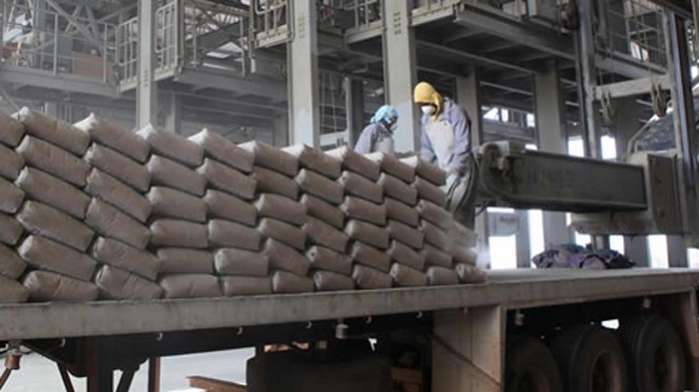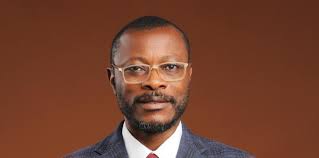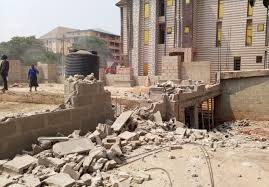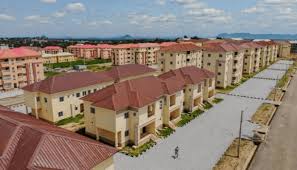
Why cement price is highest in Kano, Lagos markets
Despite the closeness of plants to Lagos, cement prices are shooting beyond the roof in reaction to a price hike by the manufacturers recently.
While the producers have blamed the increase on the high exchange rate, cost of spare parts, and other logistics, builders and other prospective homeowners are worried that they are not enjoying the benefit of nearness to raw material and market.
Newsmen learned that the distance of haulage of cement products from Ibeshe cement factory owned by Dangote is about 34 kilometers and from Ewekoro and Sagamu cement plants produced by Lafarge is about 68.5 and 67.3 kilometers respectively.
Similarly, the distance from the Obajana cement factory to Kano is about 614 kilometers. In Lagos, a 50-kilogram (kg) bag of Dangote Cement, BUA, and Lafarge is sold between N4, 300, and N4, 600 in Abule Egba, Sango Ota, and Lekki areas. In Kano, Dangote goes for N4, 500, while BUA N4, 700, and Lafarge cost N4, 450 for 50kg.
It was further gathered that apart from Kano and Lagos, which have enjoyed growth in construction and real estate activities, which has increased the demand for cement and heightened cost of building materials, a sector that had been reeling under pressure from government policies and debt burdens.
Group Executive Director, Strategy, Portfolio Development and Capital Projects, Dangote Industries Limited, Edwin Devakumar, reportedly said: “We are expanding capacity from about 50,000 tons a day at the beginning of the year to 70,000 tons a day at the end of the year.
“All other producers in the market can sell at their own price,” Devakumar said, adding that price-fixing does not exist in the Nigerian market.
He noted that prices have scaled up on account of higher demand, increased cost of diesel, and erratic supply of gas required for powering manufacturing plants.
“Transport fares for moving cement have jumped up, due to congestion at the ports that have resulted in longer turnaround time for trucks.”
Experts said, Lagos is the fastest growing city in Sub-Saharan Africa, which puts pressure on building materials, especially cement.
According to an architect, Mr. Olufemi Shodunke, the development of Lagos is unprecedented and cement is in the highest demand due to construction activities in both cities.
“In a situation where demand over the associationts supply, you are bound to have such price surge,’ Shodunke said.
Besides price increase by manufacturers, he blamed the increase on middle players that want to earn higher profits.
The Vice President, Real Estate Developer A of Nigeria (REDAN), Southwest zone, Mr. Debo Adejana, said transportation should not be a factor when it concerns bringing cement to Lagos.
He said the price should not be so high, as their returns are being reflected on the profit declared by the manufacturers.
Adejana said except for big developers that could buy in bulk, small private developers, who contribute largely to the increase in the housing stock, find it difficult to do as it reflects on the home prices.
He said that private developers are desirous of engaging manufacturers on how to make cement affordable to their members, adding that they will not relent until it is done.
The immediate past president, Nigerian institute of building (NIOB), Mr. Kunle Awobodu, corroborates the fact that there is more demand in Lagos and Kano than in any other city in Nigeria, anticipated cheaper cement prices.
He, however, said that the expectations that Lagos should benefit from the closeness of cement factories in Ibeshe, Ewekoro, and Sagamu are being eroded due to bad roads in some of the locations.
Currently, the Nigerian local cement production capacity is expected to increase to 60 million tonnes per annum (mtpa) by 2022.
The cement industry has three major players with Dangote Cement Plc being the market leader, controlling 60.6 percent of the market share with a local installed capacity of 29.3 million MT.
Lafarge Africa Plc has 21.8 percent share with a production capacity of 10.5 million MT while BUA Group accounts for 17.6 percent share.
Specifically, Dangote Cement is Africa’s leading cement producer with operations in 10 African countries, and revenues in excess of $2.5 billion as well as the production capacity of up to 48.6 million tonnes per annum (Mta) across Africa as of 2020.
Dangote Cement plant in Obajana, Kogi, is the largest in sub-Saharan Africa with 10.25 million tonnes per year capacity across three lines and a further three million tonnes per year capacity currently being built.
In 2012, the firm opened a $1 billion cement plant in Ibese, Ogun. The facility is capable of producing six million metric tonnes of cement per year, raising the company’s total production by 40 percent at the time.
The company’s plant in Gboko, Benue has three million tonnes per year capacity with an upgrade to four million tonnes per year.
Dangote Cement controls 61 percent of the market share, Lafarge Africa 22 percent, and BUA Cement the rest.
Lafarge has an installed cement production capacity of 14.1 million metric tonnes per annum (mmtpa), aggregates capacity in excess of 5 mmtpa, and ready-mix concrete capacity of over 3.5 million cubic meters.
With plants in Ewekoro and Sagamu in the South West, Mfamosing in the South-South, and Ashaka in the North East of Nigeria, Lafarge Africa Plc currently has an installed cement production capacity of 10.5MTPA and has plans to grow in the near term.
BUA Cement plans three new cement plants of three million tonnes each year in Edo, Sokoto, and Adamawa states. The projects are to be completed by the end of 2022. Upon completion, this will bring BUA Cement’s total capacity to 20 million metric tonnes.
The three new plants are in addition to BUA Cement’s already existing 6mmtpa plants in Edo, 2mmtpa plants in Sokoto, and another 3mmtpa plant in Sokoto.
Credit: Guardian
Similar Topics
The Lagos State Government, through the Lagos State Physical Planning Permit Authority (LASPPPA),...
a month ago Read MoreThe Federal Government has expanded the Abuja-Kaduna-Kano Road project to incorporate a direct...
a month ago Read MoreThe Federal Capital Territory Administration (FCTA) has taken possession of Wadata Plaza, the...
a month ago Read MoreDefaulters on FCT ground rent now have 14 days grace to pay up what they owe the FCT Administration...
a month ago Read MoreUnprofessional practices by estate agents in major cities are significantly influencing the spike...
2 months ago Read MoreA Real estate development firm, Lifecard International Investment Company, has revealed that many...
2 months ago Read MoreDespite a fall in investment volumes from the 2021 peak, there is an ongoing desire for property...
2 months ago Read MoreThe Lagos State government has advised the leadership of the Nigerian Institution of Estate...
2 months ago Read MoreReal estate market dynamics such as construction cost, land, finance, government policies and taxes...
2 months ago Read MoreEvent Set to Celebrate Managers Who Shape Careers and Drive Organizational Growth Business...
4 months ago Read MoreGlobal Leaders to Converge in Lagos for Landmark Event Driving Urban Innovation and...
4 months ago Read MoreIn a bold move to redefine affordable luxury housing, Nigerian real estate giant Gtext Holdings has...
4 months ago Read MoreIndustry Experts Urge Anti-Corruption Measures, Innovative Financing to Address Crisis By: Oche...
4 months ago Read MoreLAGOS, NIGERIA – Global real estate consultancy Knight Frank and UK developer Mount Anvil...
4 months ago Read MoreBy Oche Onum Lagos, Nigeria As Nigeria’s real estate sector braces for 2025, rapid...
4 months ago Read MoreBy Oche Onum Abuja, Nigeria In a landmark move to combat climate vulnerabilities in urban...
4 months ago Read MoreLAGOS, NIGERIA The Federal Government announced plans Wednesday to establish a Real Estate...
5 months ago Read MoreAccording to The Guardian's investigation, 70% of Nigerian states rely on manual land...
5 months ago Read MoreWhat is the Initiative? The Federal Government of Nigeria has unveiled an N100 billion private...
5 months ago Read MoreAbuja, Nigeria’s gleaming administrative capital, has long symbolized hope for migrants...
5 months ago Read More














